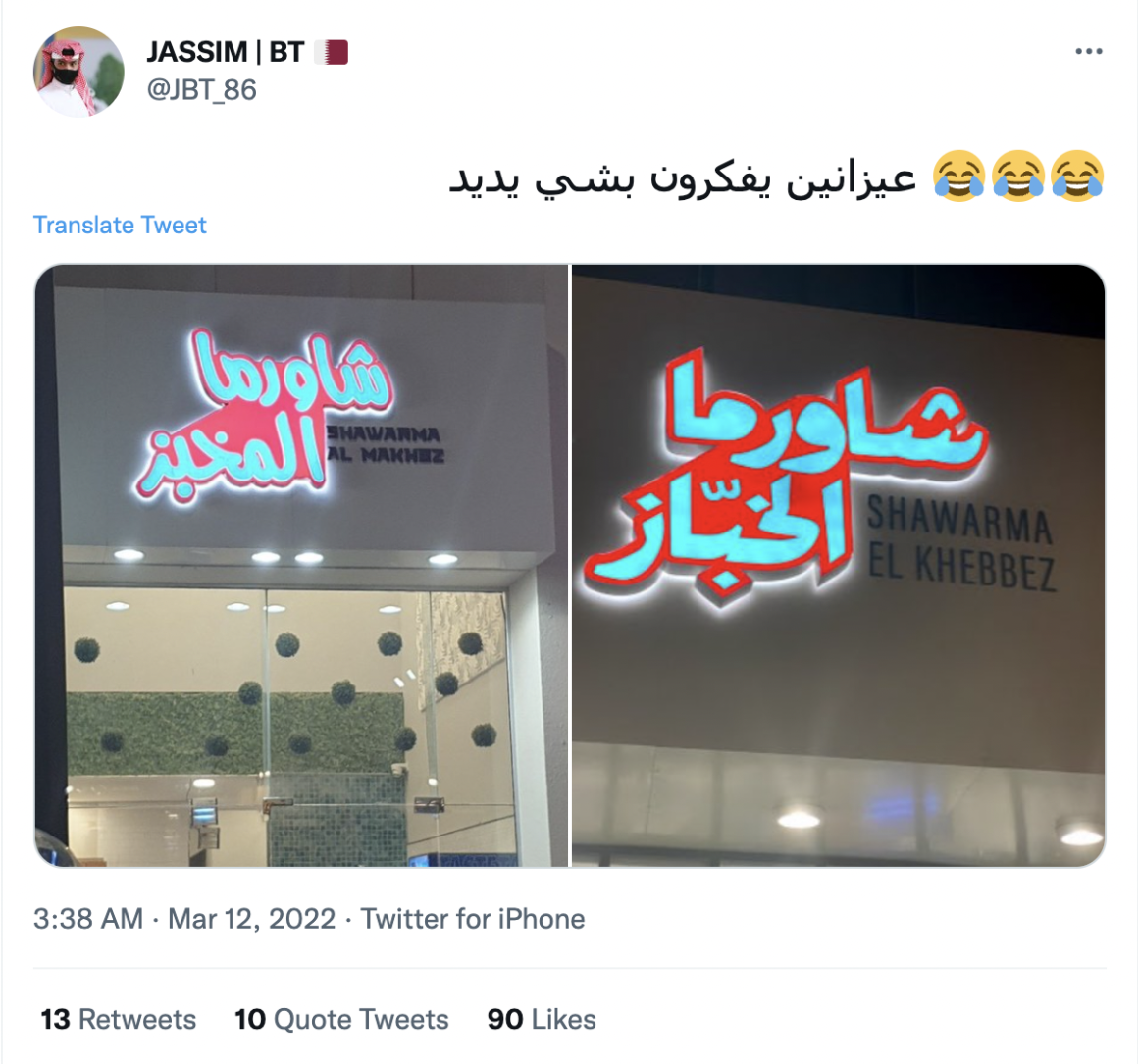Infringement on intellectual property and copyrights “stop the flow of authenticity and originality within the fabric of local market,” co-owner of a Qatari business said.
Threats of copyright issues are a debacle that many local businesses navigate when they step into the lucrative Qatari market despite the presence of laws to protect owners and deter deceptive trade practices.
Copyrights issues can become a round-the-corner threat for small businesses as they embark on building a competitive edge in the market, many of which have not yet left a mark or established a well-known brand to anchor their position.
Small business owners who want to prevent the theft of their intellectual property —such as their logos, websites, and products — can often get entangled with the consequences of absent copyright protection, which ensures that the owner of an original work has the exclusive right to use, reproduce, distribute, and display it.
Online conversations regarding infringement of intellectual property and copyrights have largely encircled the prevalence of its occurrence in the Qatari society.
“It has almost become a norm, to a point where people who violated copyrights issues think it’s fine to argue back and exercise a right to claim their misuse of other people’s intellectual property,” a Qatari business owner who chose to remain anonymous told Doha News.
‘The market is for all, but doesn’t mean we steal’
Local business Cards Cult received an infringement blow earlier this year when a new competitor directly lifted its products and advertised it online as its own items.
Cards Cult is a women-led Qatari business that specialises in creating greeting cards that stand to be relatable and resonate with various age groups. The company has built a recognisable brand that blends local tropes with a western pop culture spin.
The unique concept and services, which can, at times, go beyond mere selling of cards, has allowed the business to build a community in the Gulf nation and garnered a wave of support online.
However, owners Dana and Salama were shocked to find a barrage of direct messages alerting them that their hand made products were being platformed on another cards business account.
“We got direct messages from our followers, sending us the posts and asking about whether we knew that this account existed who was selling the same exact products and even posted the same pictures to advertise those products,” Dana told Doha News.
Making their initial move to address the evident copyrights infringement, the Cards Cult team approached the business online.
“We said that we don’t appreciate our personal photos being take from our accounts and edited or reposted without consent,” Salama told Doha News.
“There is room for every business to flourish and that we all exist in the same creative space but that doesn’t mean we should steal others’ ideas or content. Especially that it didn’t stem from being inspired but rather it was pure theft,” she added.
Salama said the business lifted the Card Cult concept and stole its elements, even going as far as paraphrasing the company’s ‘About Us’ section.
“That is on top of the outright reposting of our photos where our hands appear in it,” Salama added.
“It is healthy to have competition, however, there is a fine line between creating competition within the same market and directly stealing ideas”.
Despite the infringement, the two young entrepreneurs say there has been no setback.
“It is harder for them [potential businesses] because they will always be a step behind since they’re always awaiting a ready-made idea,” Salama said.
In a bid to cultivate a more local business-welcoming environment, Salama told Doha News: “We always hope that there is room for more awareness around copyrights issues within the community and how it can negatively affect the original business owners and the creative domain.”
“They stop the flow of authenticity and originality within the fabric of local market,” she added.
‘Easier to steal than create’
However, Cards Cult is not the only victim of such incidents. Restaurant chains in Qatar and social media users online were not hesitant to call out and mock the unoriginality of businesses.
Last year, rumours about Saudi Arabia’s ‘Al-Baik’ coming to Doha began circulating on social media after a local ‘Qatari Affairs’ account tweeted the news.

However, it soon came to light that a restaurant with an almost identical logo and name popped up on the streets of New Rayyan at the time. The Saudi restaurant chain was quick to deny the news on Twitter, stating that they are taking legal action against the Qatari replica.
The replica released a statement on Instagram, maintaining that it is a “100% Qatari project”, adding that they had to “clear the confusion.”
“It is almost like it’s become easier to steal products and ideas rather than create,” a person who remained anonymous detailed about the local business environment in the Qatari market.
‘Hesh’, a local-owned business, had claimed ‘Tash W Rash’ had copied their concept, branding, and aesthetics, Doha News reported back in March 2022. Both are local cafes.
Another such instance applies to ‘Créme’, a London-based dessert shop known for its cookies, which was soon replicated by ‘Crimy’ in Lusail.
However, the fate of another local business that faced a similar violation came to a dead end.
Speaking to Doha News, Ahmed, a co-owner of a traditional gift shop business that also had plans to sell local-themed playing cards, said the copyright infringement heavily demotivated him.
“We were ready to launch our products and had already posted sneak peaks of the product. The designs were quite unique or not done as of the time of online announcement,” said Ahmed, who chose a different name for anonymity purposes.
Shortly after, he said he received a text message by a mutual friend enquiring about the manufacturer which printed his cards. Ahmed responded to the message but was shocked to later see the same designs on another account.
“Prior to our initial release I saw it posted on the other account, which had thousands of followers. Granted he also posted a sneak peak but I could tell it’s the same product [playing cards],” he added.
“I felt especially bad about it because it was a mutual friend who had given the other person the supplier so I know that the person took the idea from us and did their own rendition. It was deeply hurtful at the time but I learned a lot from it,” Ahmed told Doha News.
Despite the clear infringement, Ahmed and his partner fell short of taking any legal action as “the product was small, we were a home business and there is so much plausible deniability,” he said.
“I felt so demotivated and did not want to create because I thought that someone with a larger following would claim the idea as their original and I wouldn’t have the platform to question it.”







